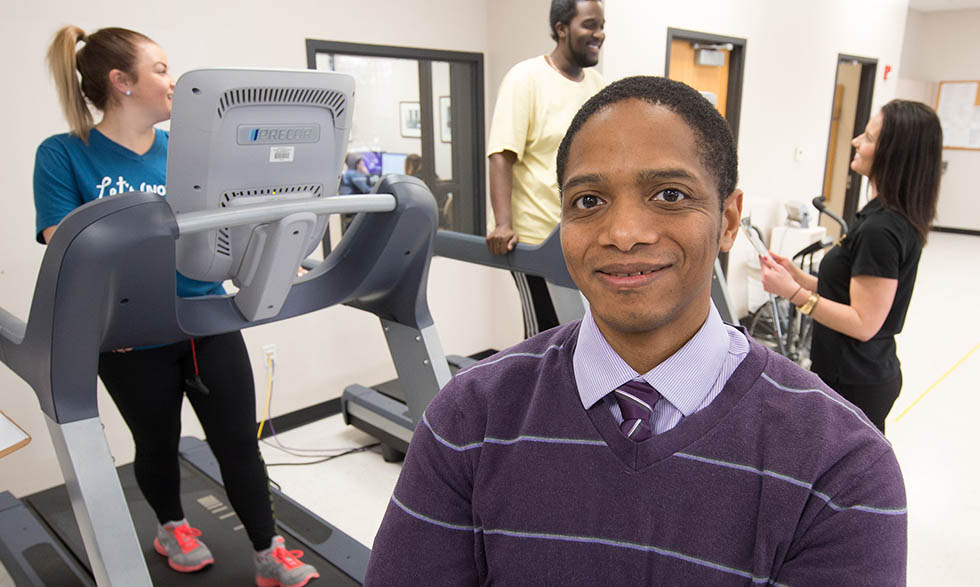
Last updated on July 27th, 2024 at 11:03 am
Damon Swift, Ph.D., studies exercise training and risk factors for heart-related disease. He spoke about recent research in this area funded by the National Heart, Lung, and Blood Institute.
Tell us about your recent research in exercise.
Our latest study looked at the relationship between the amount of exercise needed to maintain weight loss in obese and overweight people. We also wanted to understand how exercise impacts your cardiovascular disease profile.
The study took 39 overweight and obese adults and had them lose about 7% of their weight. Then, in a maintenance phase of the study, we randomly assigned people to two different amounts of cardio exercise.
What are some of your preliminary findings?
About 90% of the people in the study made the weight loss goal with an average weight loss of about 9.8%. Their glucose and insulin levels, which are major risk factors for type 2 diabetes, both improved. Their blood pressure and cholesterol levels improved. We also saw improvements in the health of people’s blood vessels.
Why is that important?
It shows that maintaining your weight loss and improving your overall fitness will lead to better health. Diet also plays an important role. After the diet phase ended, some of the participants’ cholesterol levels increased, even with exercise. This may suggest that you need a combination of healthy eating and exercise to improve your health. It also shows that while losing weight can be hard, maintaining those good habits and keeping the weight off in the long term are even harder.
What’s a common misconception about weight loss?
People often believe that when they’re losing weight, they’re losing only fat. Instead, they are actually losing a combination of fat and muscle. This is important for everyone, but especially for overweight or obese older adults who are trying to lose weight. Take a 70-year-old obese woman with low muscle mass, for example. Losing weight might improve some of her heart disease and metabolic disorder risk factors, but it might also decrease her muscle mass. Muscle mass is really important for quality of life. Physical activity and protein intake are key in maintaining or improving your muscle mass.
What kind of research is on the horizon?
My group is interested in personalizing weight maintenance. How can we use mobile technology to determine how much physical activity people are doing and get a clearer picture of what people are eating? Nutrition is hard to quantify, and it’s an area in which many people struggle.
Also, if someone with diabetes has lost weight, we need to be conscious of their glucose and insulin levels after weight loss, in addition to their lean mass. We need to make sure that they’re doing both aerobic and resistance training, in addition to maintaining a healthy diet.
